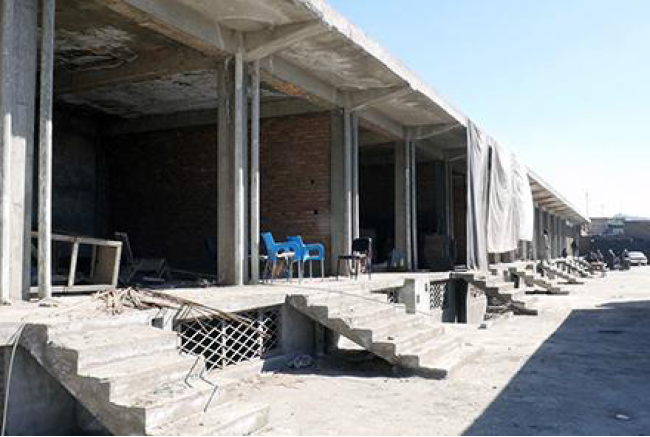KABUL - The ministry has announced it will start construction on another 12 cold storage facilities in the country at a total cost of $36 million USD.
Ministry of Agriculture, Irrigation and Livestock (MAIL) has said the ministry is planning to establish 12 large cold storage facilities across ten provinces for fresh produce.
Each cold storage facility will hold up to 500 tons.
MAIL spokesman Akbar Rustami said the new cold rooms will be established in line with international standards so as to keep agricultural products fresh.
According to Rustami, these cold storage facilities will cost in total $36 million USD.
“The announcement phase of these 12 cold rooms has been finished and I can say that practical work will start in the next fiscal year,” said Rustami.
Rustami also said construction on another eight cold storage facilities, that was put on hold last year due to contractor problems, will be resumed this year.
“Based on MAIL’s plan, the design of these eight cold rooms has been completed and the practical work will start soon. These cold rooms will cost $28 million USD which will be paid for by the World Bank. These cold rooms will be completed by the end of the year,” Rustami said.
Meanwhile a number of experts in the agricultural sector said cold storage facilities play a vital role in preserving fresh produce for the market. They said government should consider the establishment of cold rooms as a priority.
“During the harvest season, the products are sold at a lower price on the market but when harvest time is over, prices increase by five to six times. Therefore, standard cold rooms should be established to store produce for a long time,” agricultural expert YasinFarahmand said.
According to a number of agricultural experts, if government establishes more cold rooms, the revenue in this sector will increase significantly and Afghanistan will eventually become self-sufficient in terms of supplying the public with fresh produce. (Tolo news)
Home » Afghanistan » MAIL to Construct another 12 Cold Storage Facilities
MAIL to Construct another 12 Cold Storage Facilities

